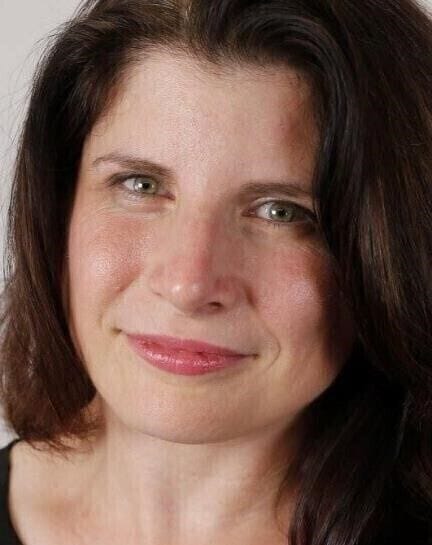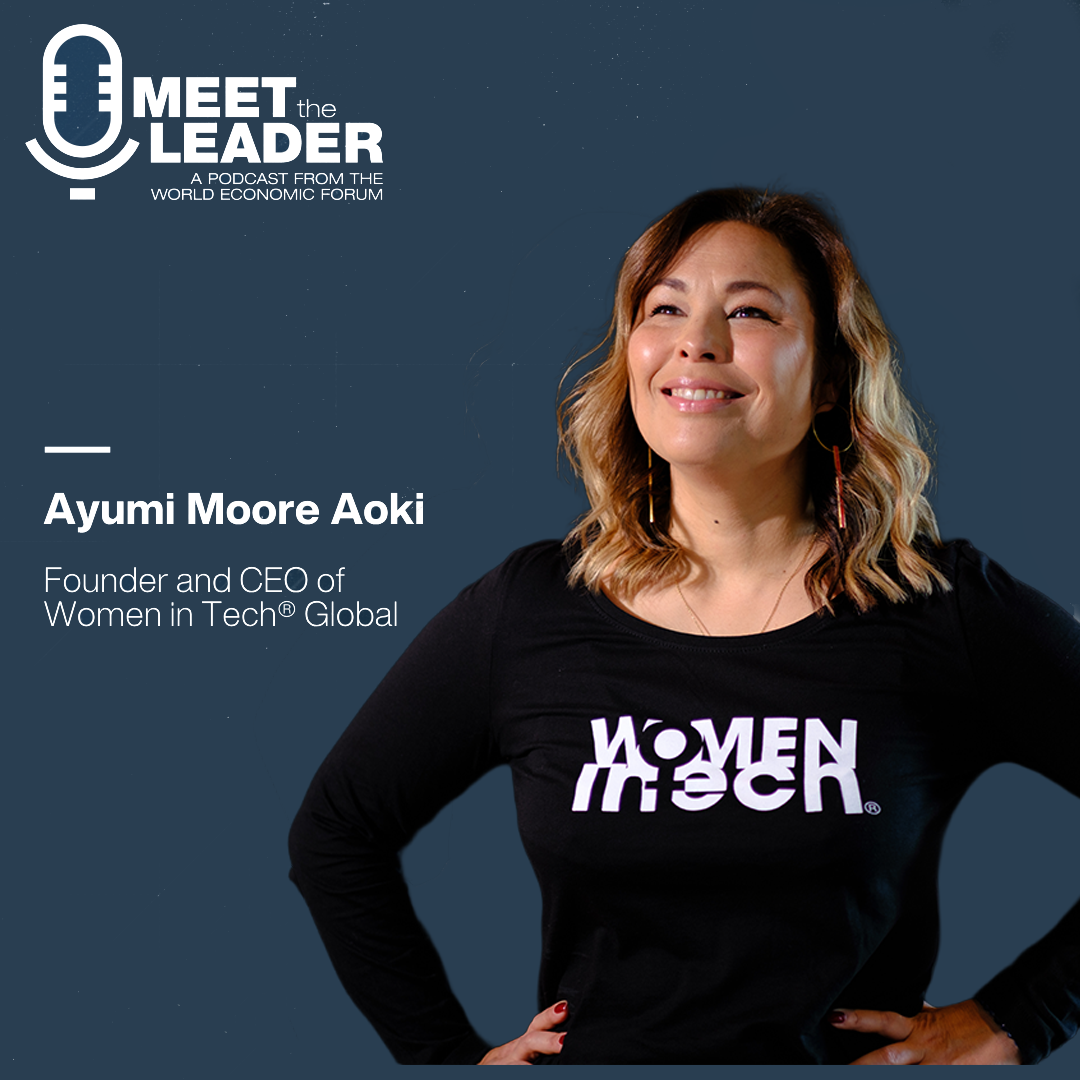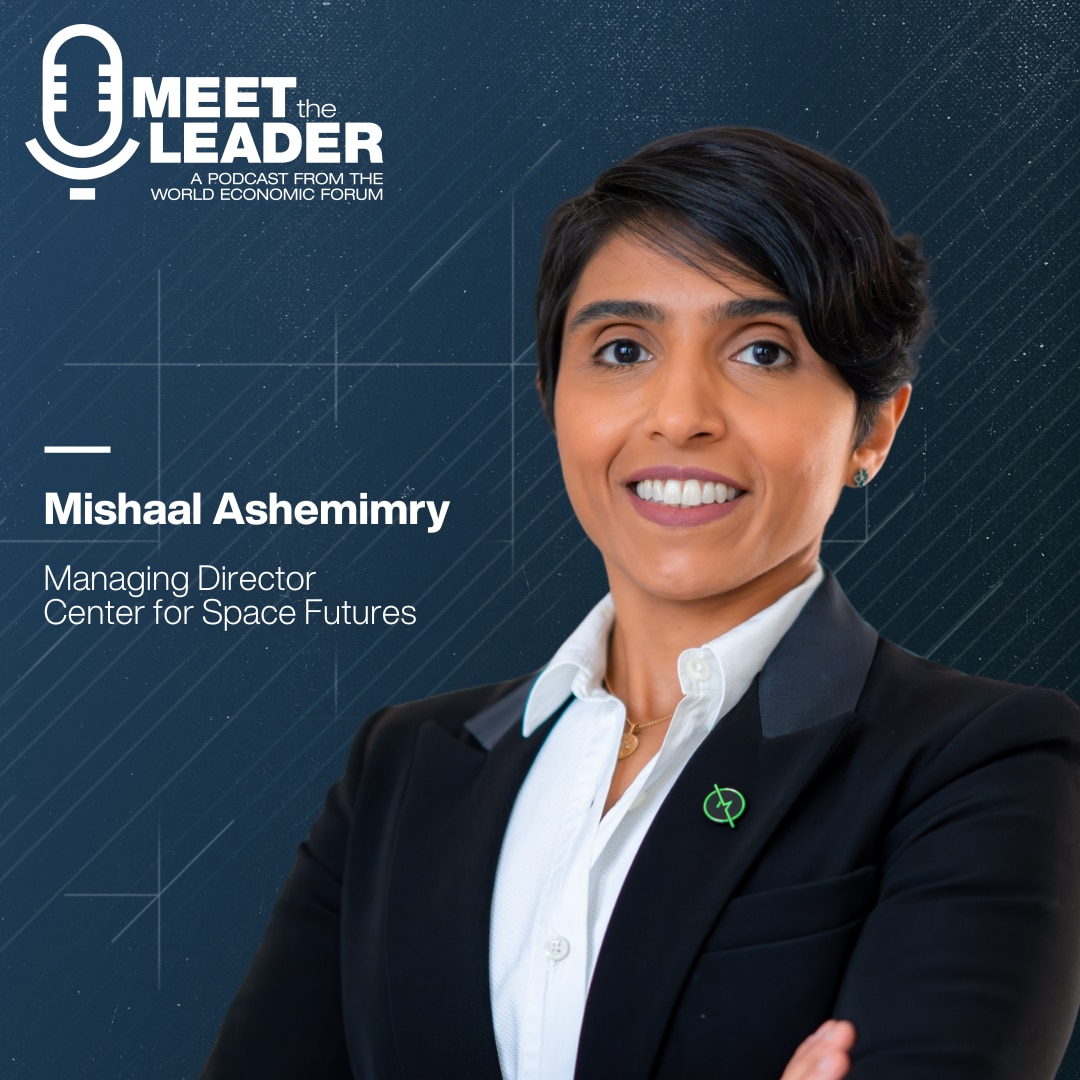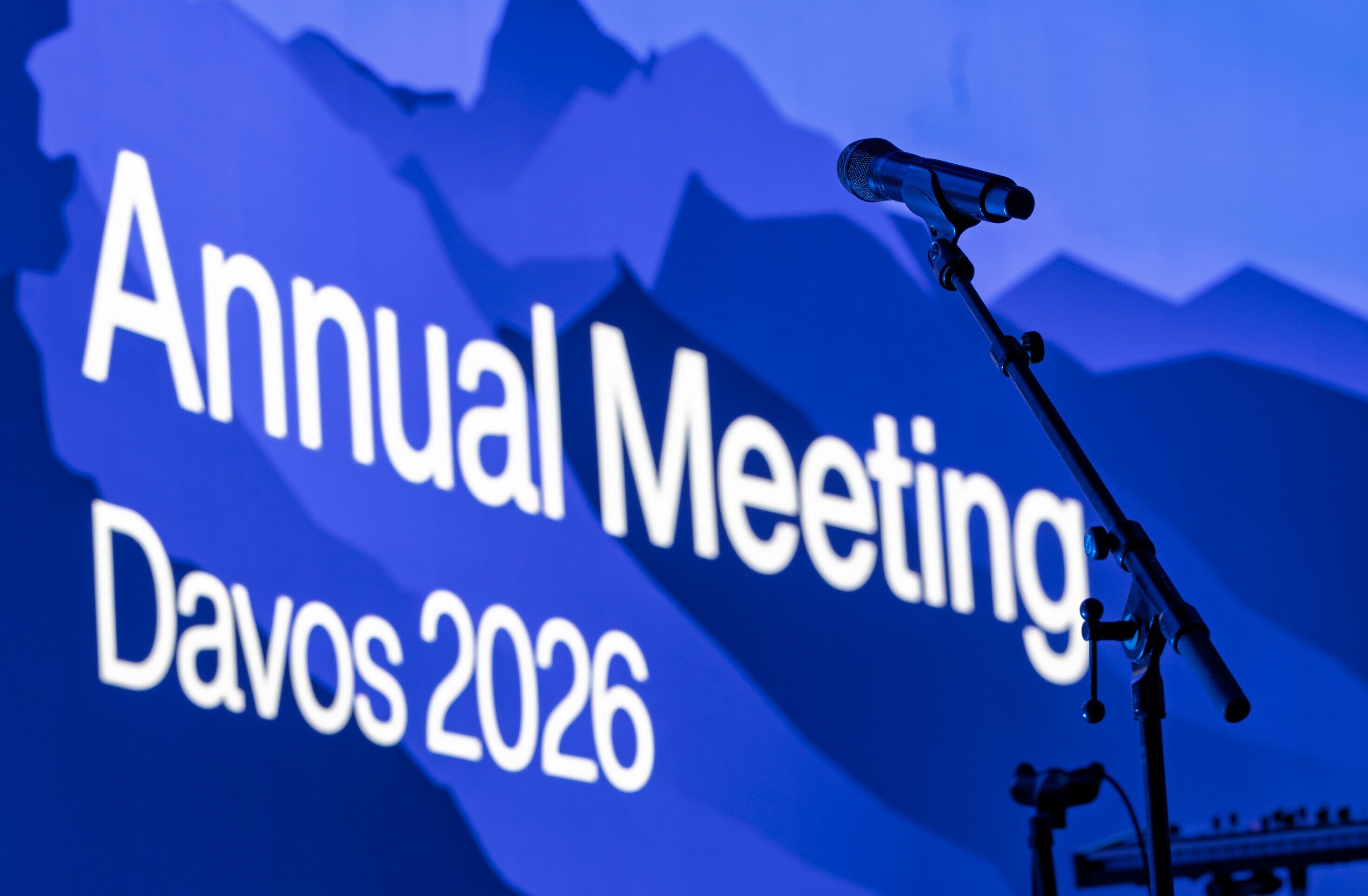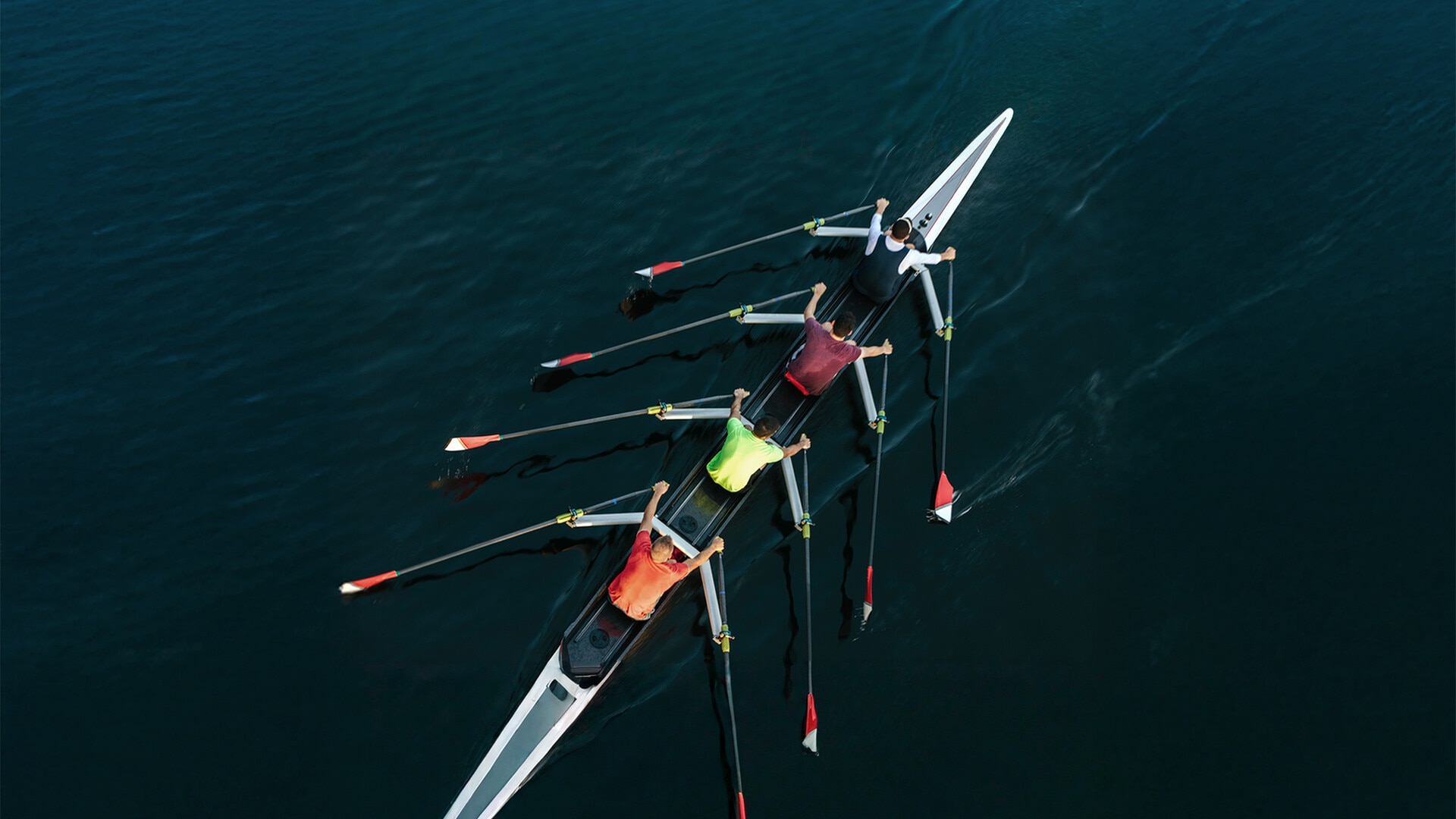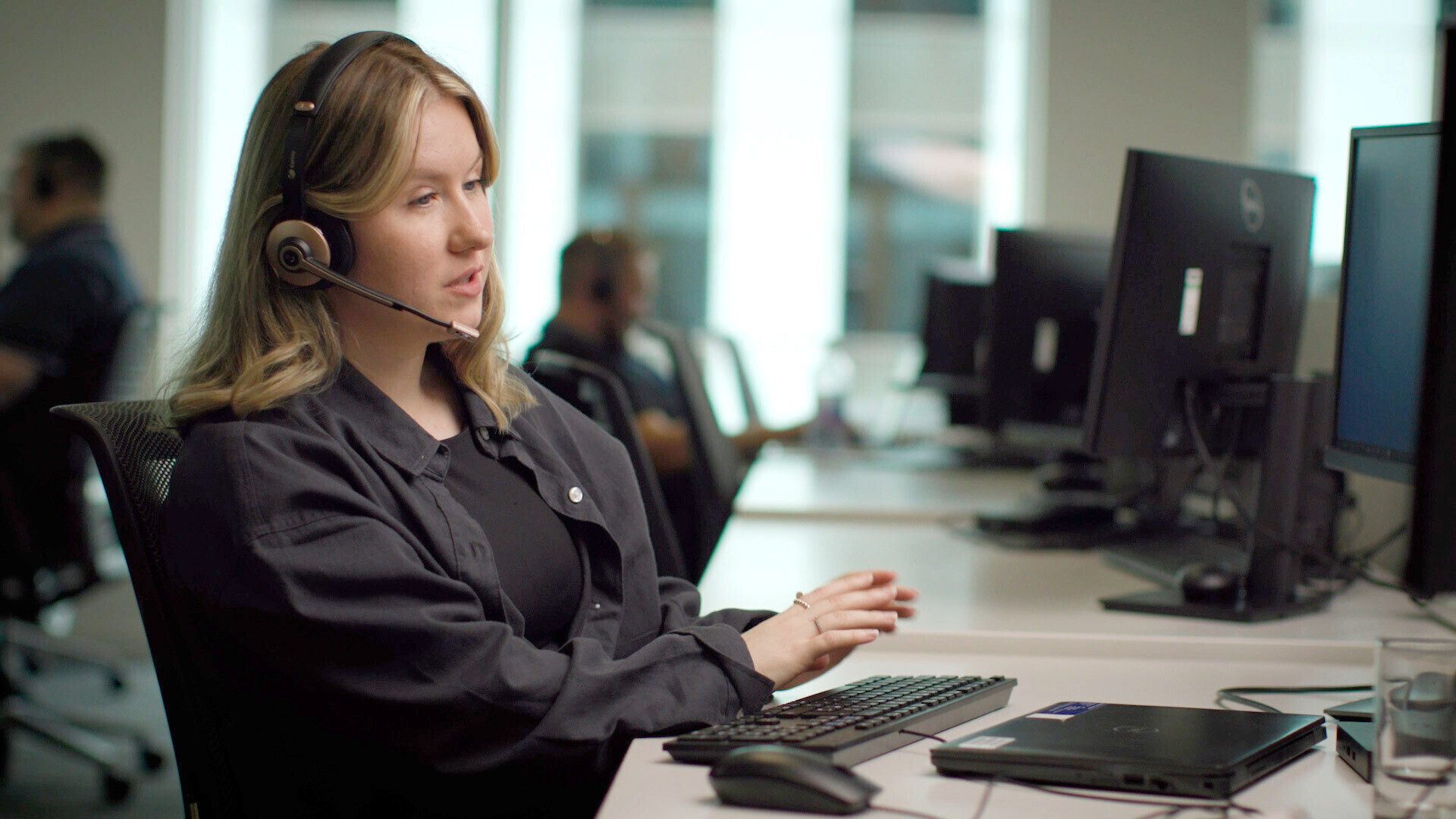Helping the unprecedented number of forcibly displaced
播客文字稿
Kelly Clements, UNHCR This is about the future generation. This is about those that will be involved in climate action, in educating the next generation, and finding the innovative solutions of the future. Unless we're educating refugees, we're leaving out 1% of the population. So it remains tremendously important.
Linda Lacina, Meet The Leader Welcome to Meet the Leader, a podcast where top leaders share how they're tackling the world's toughest challenges.
Today we talk to Kelly Clements, the deputy high commissioner at the UN's refugee agency. She'll share how leaders are making a difference for the unprecedented number of displaced people around the world.
Subscribe to Meet the Leader on Apple, Spotify, and wherever you get your favorite podcasts. And don't forget to rate and review us. I'm Linda Lacina with the World Economic Forum and this is Meet the Leader.
Kelly Clements, UNHCR Refugees today -- the majority are not refugees for a week, a month, a year. They're refugees for sometimes a generation or two generations.
Linda Lacina, Meet The Leader At the halfway point of 2023, there were an estimated 110 million forcibly displaced people worldwide. That's a number that includes those in need of protection, internally displaced people, refugees, asylum seekers. Some have been forced to leave their homes thanks to climate calamities, but still others due to conflict.
And that 110 million estimate already unprecedented, does not include those impacted by the recent crisis in the Middle East.
Forced displacement is a complex problem. It's also one that the private sector has a unique ability to make an impact on.
For this week's Meet the Leader, I spoke with Kelly Clements. She's the Deputy High Commissioner for UN’s refugee agency. That agency works in more than 130 countries, to support those in need, to safeguard human rights, more.
I talked to Kelly during UN Week this September and she shared some of the solutions being put into place to help and what leaders can do to make an impact. I'll let her get started with more on the forcibly displaced.
Kelly Clements, UNHCR Well, we're seeing now a record numbers of people that are forced to flee their homes because of war, conflict, persecution. A number of factors. And now, of course, importantly, climate factors.
And there are currently actually, as of the middle of this year, 110 million people worldwide that are forced to flee. Now, we think that number with what's happening in Sudan, for example, with 5 million, 4 million internally displaced and a million refugees that have gone to neighboring countries, that number is unfortunately going up substantially higher.
These are people that either try to find some kind of host in neighboring countries around where they are from. They want to stay close to home. They want to go back as quickly as they can. They are going primarily about 75-76% to lower and middle income countries. So these are fragile environments. They're susceptible to climate shocks more so than other parts of the world.
And they are being hosted very generously by communities that don't have very much themselves. So they need substantially more help from the international community than than others may.
They are looking, obviously to go back quite quickly. But given the absence of political solutions, this remains elusive. So we're really trying to look at new approaches, as in the international community, to address the needs of the forcibly displaced.
Linda Lacina, Meet The Leader And what is the role of the private sector in a crisis like this? What should they be thinking about? What should they be doing?
Kelly Clements, UNHCR You know, the Global Compact on Refugees back in 2018 really looked at this from what we call a whole of society approach that, you know, it's not UNHCR, it's not governments alone, it's not our important partners that are that need to be at the table to try to figure out how is it that we're going to design these solutions. But we need private sector, we need civil society.
Refugees today the majority are not refugees for a week, a month, a year. They're refugees for sometimes a generation or two generations.
”Very importantly, it's refugees and the displaced right at the center of the conversation, making decisions for themselves and driving that. And so the private sector, they bring so much to these responses. They bring innovation, they bring expertise, they bring their good will. Obviously, they bring a strong voice. And in some of these contexts, of course, the policy environment is quite restricted, which means, of course, economics talks. So in terms of trying to make a more permissive environment where refugees, for example, could work, could put their kids in school to be able to access health services. Trying to avoid creating parallel systems for emergency response, especially when refugees today the majority are not refugees for a week, a month, a year. They're refugees for sometimes a generation or two generations.
So we need to be thinking about solutions right from the very beginning of people leaving their homes. And the private sector has such an important role to play. We saw that last year, obviously with with Ukraine and what happened in terms of the neighboring countries receiving millions of Ukrainian refugees. And we were able to put some really innovative solutions into place to be able to deliver more efficiently and more effectively, to be able to protect and to aid.
Linda Lacina, Meet The Leader Let's talk a little bit about some of those innovative solutions. What kind of programs, what kind of initiatives, what sort of approaches are really, really are you seeing bringing some success?
Kelly Clements, UNHCR So we have you know, we've got a lot of partnerships that have been partners for some time. And give you an example, I was in Ethiopia in July and saw a project that we've worked on with the IKEA Foundation to try to link climate, energy education. The Ethiopian government had made land available for both refugees and free Ethiopians. They were farmers who were looking at looking at crops and marketability and that sort of thing, and it's become self-sustaining now. So the community, including refugees, are actually economic drivers in that particular community. We could not have done that without IKEA.
Vodafone has helped with this instant school network program in various parts of the world, highly successful, where we're trying to link students in sometimes very remote locations in camps, but also if most refugees are actually outside of camps. But because so many kids are out of school today and refugee children, about half are not in school, we need to really bump up those efforts, which means we need private sector to help us to try to connect with those students and to be able to bring distance learning and other tools that we can look at different ways other than the very traditional "kids in a classroom" type setting that some of us may be used to.
We have other innovations, for example, where we've looked at delivering cash based assistance, which is a really important form of of assistance and protection for people that are in need. They make the decisions about what kind of aid or what kind of support they need themselves, as opposed to us making it for them.
It was the private sector that helped us stand up in no time a cash support system in the Ukraine supporting millions of refugees within just a couple of weeks. That would not have been possible without the private sector.
Linda Lacina, Meet The Leader In your mind, in your experience, what's an element or a trait of these programs that makes them really successful? What do they need to have in place for them to make a difference?
Kelly Clements, UNHCR Leadership. It comes down to leadership. If you have a CEO or a leadership team that knows that that they you know, they want to make a difference, that this is important not just from a corporate social responsibility point of view, but also can see the benefits that in many of these contexts, this is not just about assisting a refugee or a host community. This also makes good business sense. So if the leadership sets the tone from the top, you also have obviously employees of this company that increasingly want to do good in the world. They want to be able to make a difference.
And we see also employees saying, what are we going to do to respond, for example, to the Sudan situation? What are we going to do to ensure that Ukrainians in Moldova are better supported, that we're providing support for those primarily women and their families that have fled Ukraine? And so I think it's a combination between, you know, a company, obviously, that that has a sense in terms of where it wants to go and wants to take the business itself, but also has a good perspective in terms of why forced displacement is really one of the defining moments of our time.
Linda Lacina, Meet The Leader You mentioned education in how school children are in a particularly bad spot. Can you talk about how that's factoring in for the Rohingya community.
And their children?
Kelly Clements, UNHCR The Rohingya are the largest stateless population in the world. I have a little experience with that. That's where I began my career 30 years ago. In terms of Myanmar, there have been three big waves 1978, 1992, and then again in 2017. There are currently about 1.2, 1.3 million Rohingya that are outside of Myanmar, outside of that Rakhine state area where where they are from. There are a number of reasons why they have left in terms of their lack of citizenship issues related to forced labor, the inability to put kids in school, the inability to make a living and persecution.
And we see now, of course, you know, not just in that part of Myanmar, but issues of internally displaced are quite substantial and there are about 2 million across the country, but the Rohingya are one of the largest refugee populations. Bangladesh has been generously hosting them not just for the last six years, but for the two waves before.
And so Bangladesh, in terms of trying to provide that kind of education to support the ways that Rohingya can try to make some living before it's possible for them to return safely and voluntarily to Myanmar is something that we're trying to support Bangladesh to do.
Linda Lacina, Meet The Leader How does this situation particularly impact women and girls?
Kelly Clements, UNHCR Well, in many situations around the world, of course, forced displacement disproportionately affects women and girls. Gender based violence, sexual violence, of course. And in this case, of the harrowing stories that we heard back in 2017 when a million people or close to went to Bangladesh, there were many stories of gender based violence and that being a reason for people to actually flee Myanmar. And that is something, of course, that we need to continue to take care of, both in the camps in Bangladesh and take care of those requirements, but also to make sure that in the situation where they are now, that that doesn't become exacerbated because we see situations when times are difficult, when it's difficult to make a living, when people are out of school, they aren't, you know, supporting themselves. It becomes very tense. Domestic violence increases. And this is something, of course, that disproportionately affects women and girls.
This is another reason why education is so important. Education protects. So putting kids and girls in particular, making sure that they are going to school. This is something we need to make much more progress on. We're still in terms of refugee education, there is a big distinction between refugee students, particularly girls and the host population. We want to try to increase that for all.
Linda Lacina, Meet The Leader There's also these perilous boat journeys. What are the particular challenges around so many refugees taking these boat journeys from Bangladesh and Myanmar.
Kelly Clements, UNHCR This year, it's three times as high as is last year in terms of those taking the journeys. And it's really a signal of desperation. It's a signal of a loss of hope that it's going to be possible to return to Myanmar in the near future. The conditions in the camps are quite difficult. Kutupalong is one of the world's largest refugee camps, while we and many other partners with the government of Bangladesh are trying to provide that kind of support, it's not enough.
And so when you see people basically deciding to take their lives in their own hands and take to the seas, you know that that's not just for a paycheck. There are other things going on. And that kind of desperation results in a great loss at sea. So we're quite concerned with the rising numbers, obviously the countries in the region. This requires really a regional approach in terms of being able to assist in aid. Some of them are making it to other countries and the kind of protection and support that Bangladesh has provided. We hope that others would as well.
Linda Lacina, Meet The Leader What can the international community be doing to help?
Kelly Clements, UNHCR Well, obviously, financial support continues to be important. We have a coordinating mechanism where all of the partners that are helping the government of Bangladesh, their needs are articulated through something called a joint response plan. And year -- as the as this displacement goes on, each year, the percentage of support towards that response plan decreases. And the less aid that is going into the camps in Bangladesh, the more you'll see people taking desperate journeys and more suffering from malnutrition to increased incidence of gender based violence, to not being able to put kids into school and the skills development.
Frankly, what we need to be doing now to plan for refugees want to plan for their own futures. Those sorts of things can't be supported unless we have financial support.
Then, of course, importantly, advocacy. The solution ultimately lies in Myanmar for this situation, and it's very important that the international community not forget the Rohingya and certainly not forget the host countries that are generously providing the protection and aid. So I would say between the financial support and the advocacy for this dispossessed population are tremendously important.
Linda Lacina, Meet The Leader And then also when it comes to the host countries, what can host countries know about the importance of educating the refugees as well? What should they be thinking about and prioritizing?
Kelly Clements, UNHCR Well, you know, the the Global Compact on Refugees, it's about inclusion. It's a whole of society approach. It's about self-reliance. Education is the future. And, you know, I had an opportunity here here in the U.N. General Assembly of being with a young Venezuelan refugee who has basically gotten her higher education degree in Mexico, now wants to become a Mexican citizen and build her life. And in terms of her future in the like, that's not possible without education.
She's a DAFI scholar. We're trying to actually hit in terms of the percentage of refugee students in tertiary education of 15% by 2030. Sounds rather modest, but we're only at 6% now. But this is about the future generation. This is about those that will be involved in climate action, in educating the next generation and finding the innovative solutions of the future. Unless we're educating refugees from, you know, early education to primary to secondary on to tertiary education, we're leaving out 1% of the population and we're not going to be able to to achieve the Sustainable Development Goals. So it remains tremendously important.
We need to keep forced displacement on the agenda of the public.
”Linda Lacina, Meet The Leader What keeps you up at night with all this and what gives you hope?
Kelly Clements, UNHCR Two good questions. What keeps me up at night is the sometimes fatigue we hear from the international community about continuing to respond and the financial situation with the economy as it is the post-COVID world. We need to keep forced displacement on the agenda of the public. We had an outpouring of support last year from, not just the private sector businesses and foundations, but individuals and individual giving that remains very strong, which is what gives me hope. The issue is, you know, the number of people on the move for reasons of conflict, war and persecution are increasing much faster than our ability to be able to respond. So I think the combination of that can be quite powerful. But we need to continue to capture the world's attention with why we need to care and respond.
Linda Lacina, Meet The Leader Is there a trait that you depend on most as your sort of working to move these issues forward? Something that anybody can learn from, especially as we go into some of these other meetings and things that are going to be helping with the displaced people. What's a trait you depend on most?
Kelly Clements, UNHCR Persistence. Open mindedness. Looking for new ways. Not thinking about a traditional way of approaching. And I talked about this earlier in terms of solutions. But you have a plan. But be prepared to deviate, because things are quite unpredictable. And I think particularly in in this this work that we're doing now, the unexpected partnerships can provide the next solutions.
You have a plan. But be prepared to deviate because things are quite unpredictable.
”Linda Lacina, Meet The Leader And one last question. What's your next priority for for tackling this issue? What's with top of mind for you and what are you going to be using to kind of make it move forward?
Kelly Clements, UNHCR Well, we saw this in the Sudan response where what we're trying to do in terms of finding those solutions from the very beginning of flight where people are crossing the border and taking a nontraditional approach. We are seeing collaboration with the development the international financial institutions like we never have with regard to forced displacement. So this is going to be the key in terms of supporting those host communities in host countries, you know, the protection space in terms of keeping borders open. If we can get that right, where you have immediately, like we've seen in the Ukraine response with this temporary protection across Europe within a couple of, you know, a few days of displacement, if we can see that for the forcibly displaced in other host countries, this world will be a much better place. That will be our priority.
Linda Lacina, Meet The Leader That was Kelly Clements. Thanks so much to her. And thanks so much to you for listening.
A transcript of this episode and my colleague Robin Pomeroy's episodes of Radio Davos, are available at wef.ch/podcasts.
This episode of Meet the Leader was presented and produced by me with Taz Kelleher as editor and Gareth Nolan driving the studio production.
That's it for now. I'm Linda Lacina, with the World Economic Forum. Have a great day.
2023 saw an unprecedented number of forcibly displaced people worldwide - 110 million and counting - all thanks to climate calamities, conflict and more. Kelly Clements, the deputy high commissioner of the UN’s refugee agency shares the unique ways businesses around the world have stepped in to help tackle this problem, putting training in place to help refugees become economic drivers or even designing education solutions that help children in remote areas stay in school. She also shares what gives her hope, what keeps her up at night and the traits she depends on most to drive this work – insights that can help leaders of any stripe tackling complex challenges.
话题:
领导力分享:
更多集:
每周 议程
每周为您呈现推动全球议程的紧要问题(英文)
